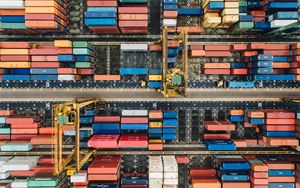(Finance) – The deglobalization of the trade it began with the 2008 financial crisis but the pandemic gave a significant acceleration: the protectionist measures in force in the world have risen to around 3,000, including duties, sanctions and export quotas, with an increase of 714% from 2008 to 2022. This was discussed in Milan on the occasion of the International Trade Forum organized by ARcom Training with the participation of companies and representatives of national and European institutions.
The return to protectionism commercial also concerns theEuropean Union, with 350 different regulatory obligations to comply with during import and export, and represents a factor of considerable complexity for all operators operating in international trade. “These difficulties – he explained Will be Armellascientific director of ARcom Formazione and among the leading European experts on customs matters – should be experienced as a real urgency by Italian companies but only 1 company out of 2 provides internal procedures for preventing customs risks and updating on prohibitions, limitations, quotas foreseen for imports and exports”.
The Forum has “certified” the sunset of system multilateral founded on the liberal principles ofWorld Trade Organization (WTO) which was consolidated in the 1990s. During the pandemic emergency, supply chains were interrupted, prompting many countries to initiate food reduction policies dependence strategic from abroad, with significant effects on global investments and trade. A trend that has also strengthened due to the decoupling between the US and Chinese economies, up to the Russian-Ukrainian conflict and the recent one in the Middle East.
“L’Italy – continues the lawyer Armella – it is the sixth country in the world for export volumes and eighth in the world ranking of importing countries. An Italian company that sells all over the world must be aware of the barriers as opportunities present at the destination customs, otherwise you run the risk of your products being rejected or remaining stuck in ports and hangars and possibly deteriorating. It’s fine to talk about Made in Italy and exports but all reasoning must be linked to the concrete reality of these goods that move around the globe. In Italy there are 120,319 exporting companies and 99,995 importing companies but there is a lack of professional figures capable of extricating themselves between prohibitions Of importcustoms duties, free trade agreements and other customs issues that may improve theItalian export, whose value in 2022 exceeded 625 billion euros. Only 11% of companies have a person responsible for corporate customs issues, while 9% are training this figure”.
The new ones scenarios geopoliticalthe fight against changes climate, the protection of the internal market are the basis of the trade protection rules also adopted at European level. Currently – the event organized by Arcom Formazione said – there are approximately 350 measures in force on the matter, of which 177 definitive trade defense measures, 117 definitive anti-dumping measures, 21 anti-subsidy measures and one safeguard measure, with an increase of 14 measures compared to to 2021. In one year the European Union has subjected 38,500 export applications for dual use goods (for civil and military use) to controls, for a value of 45.5 billion euros, while 560 export operations have been prohibited, for a total value of 7 billion euros. Bans are also constantly increasing: since the Russian invasion of Ukraine, the European Union has adopted eleven different sanctions packages banning the import and export of numerous products.
The international supply chains they also have to deal with an increasing intervention by governments in the regulation of foreign product flows, motivated by ethical values such as environmental sustainability, worker protection, conflict minerals, etc. The European Union has recently approved a series of bans and new duties, such as the CBAM, the plastic tax, the rules on deforestation, regulations of which, however, 2 out of 10 Italian companies are not aware, as emerges from the research conducted by ARcom Training with AstraRicerche.
“The radical transformations taking place in the world trade scenario – concluded the lawyer Sara Armella – have a heavy impact on companies Italian that operate across borders and the media and even the corporate strategies themselves do not deal with this. Yet, if Italy exports more and better, the economy will strengthen and we will all benefit. Therefore, at this point a change of pace by focusing on training is essential. Instead, the majority of companies (50.6%) do not follow adequate updating programs on foreign trade: only 24% of companies provide training on an annual basis. In a fragmented world, reshoring (return of production to Italy), the policies tax And tariffs and the free trade zones they will be decisive factors for the evolution of trade. It will be necessary to identify the new costs and consequently modify one’s strategy in the supplier chain, taking into account assessments of a geo-political nature and no longer of a purely economic nature”.
(Photo: CHUTTERSNAP on Unsplash)
